01 Jul 2023 Central Arkansas will be national hot spot for 2024 eclipse
Special contribution by Dr. Clay Sherrod – Arkansas Sky Observatories, Petit Jean Mountain
Mid-day sunshine will turn instantly to the darkness of night … nocturnal animals will emerge as if evening has fallen … the air will cool perhaps 15 degrees and a slight breeze will blow as in the cool of night on April 8, 2024, less than one year from now. The moon, moving eastward about its own diameter each hour, will slowly pass directly in front of the bright sun overhead shortly after noon and block its light out nearly entirely for over four minutes – one of the longest total solar eclipses in North American history.
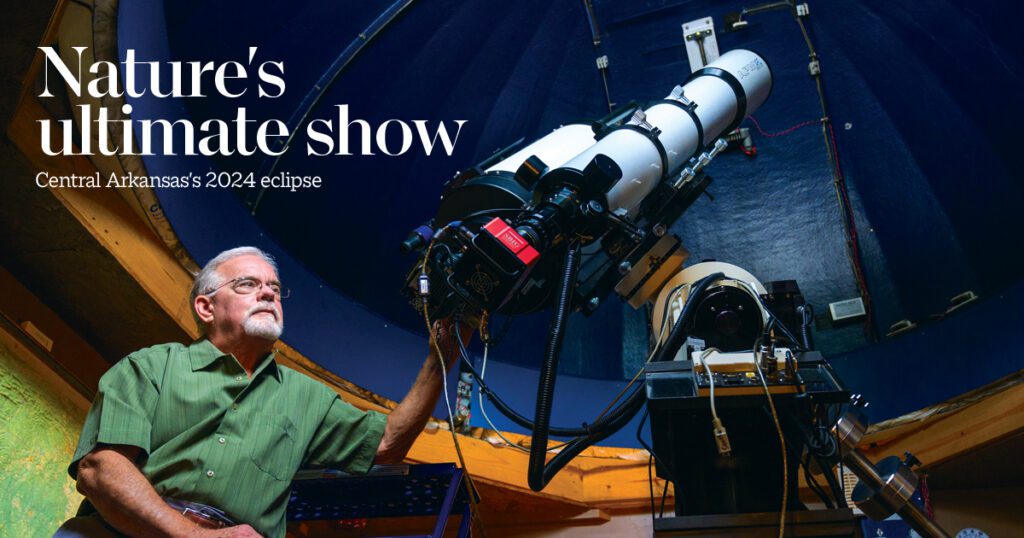
Throughout Arkansas, communities, civic leaders, landowners and entrepreneurs are readying for the grand 2024 total solar eclipse that will darken the landscape below in a huge circular shadow that will move from southwest to northeast across the state – and nearly dead center over many towns from across the 75-mile wide totality path as it sweeps over our state. This will be the most dramatic total eclipse of the sun that anyone today will ever experience in their lifetimes on American soil.
This will also be the longest totality experienced in the USA, with well over four minutes of darkness. This is almost twice as long as most have ever experienced.
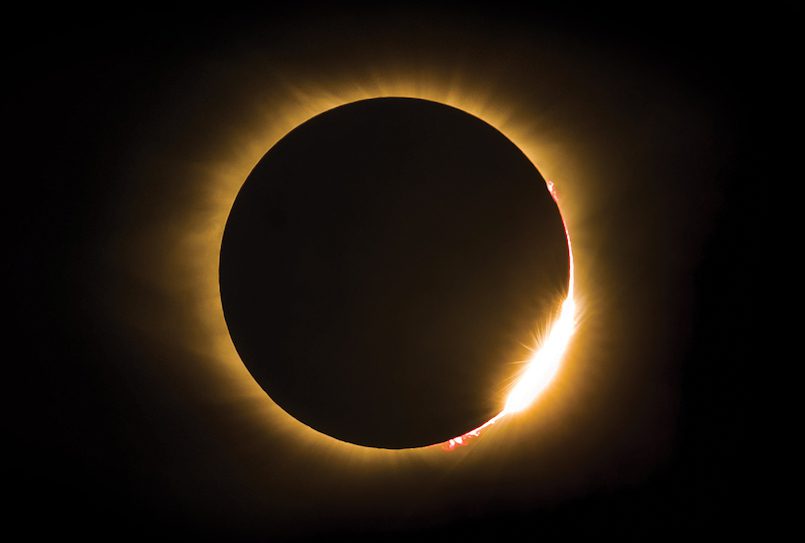
Arkansas will see an influx of visitors in the hundreds of thousands–some estimate over one million–for the week prior to this generation’s greatest-ever total eclipse of the sun, and festivities and viewing communities are being set up throughout The Natural State. Visitors from around the world will begin arriving around Thursday, April 4, and most will remain in place until the day after the eclipse, April 9.
The eclipse is nearly central – meaning that it will be longest in duration – over Mena, Conway County, from Petit Jean Mountain, through Morrilton and up past Birdtown in an angle that eventually takes the shadow over Clinton, Mountain Home and across the northeastern part of the state, then up into New England.
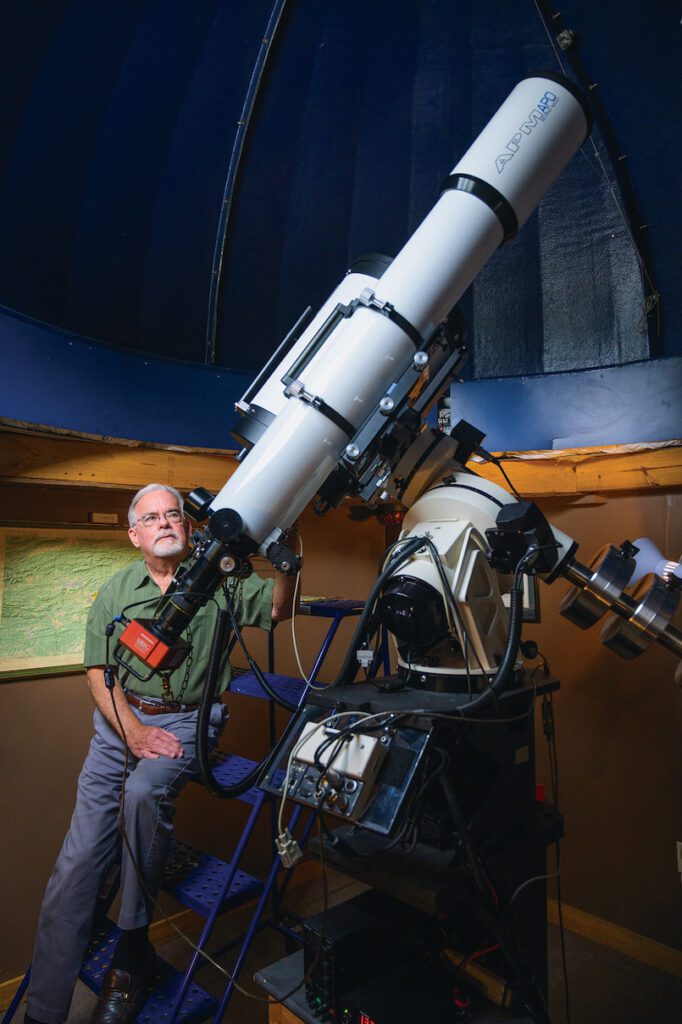
The great migration of eclipse chasers is nothing to take lightly: the 2017 total solar eclipse that passed from Washington/Oregon just north of Arkansas and eventually into South Carolina saw tens of millions of people take to the skies from whatever small foothold they might find along the path. Cities and towns were inundated with visitors, many caught totally unprepared for the massive number of people; water, medical supplies, sanitary facilities and certainly lodging were suddenly in short supply. People who did not have pre-arrangements for lodging and a small spot of ground from which to view the eclipse in 2017 were simply forced to stop along the roadways and sleep in their cars, ultimately ending up in a nationwide traffic jam that took two days to clear.
On the other hand, businesses and creative retailers brought in billions of dollars in revenue from eclipse items, food sales, motel rooms and anything related to the event. That will happen here in Arkansas for those who are prepared.
Although Arkansas Sky Observatories (ASO) plans to keep the public informed about events and aspects of the total eclipse as time grows near, it is best to start preparing now; whether you are simply a resident of the county or a business owner hoping to benefit from the tens of thousands of visitors to your area, the eclipse WILL affect you. Traffic is going to be at a standstill the day before, during and the day after the eclipse, which takes place around 1 p.m. on Monday, April 8, 2024, in Arkansas. There will be vehicles on every road, some along the shoulders, and others parked in the middle of the highway or street just to get a glimpse of history in the making. Most motels, hotels and other lodging facilities are now likely booked to capacity, so those with no firm lodging should begin to look at home rentals, camping or RV facilities at this time. Expect prices for nightly lodging to be over twice normal, with three to four night minimum stays; refunds on reservations are typically not available for eclipse lodging.
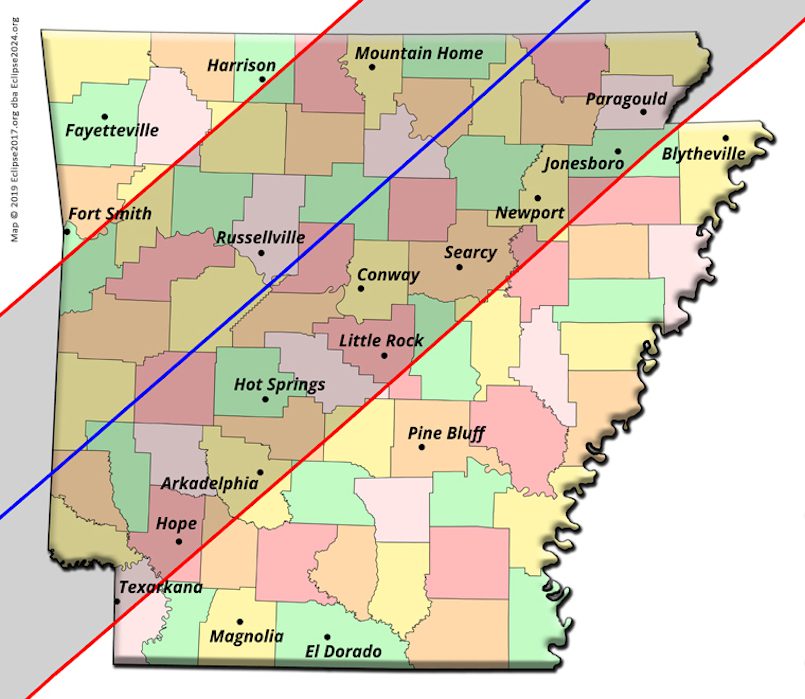
Visitors to eclipses come from all walks of life and all origins; there will be people from foreign countries who devoutly travel to every eclipse possible, and there will be a great number of people from our surrounding states attempting to put themselves in a location ideal for the four minutes of instant darkness and stars shining around noon. Most eclipse viewers for the 2024 event are likely to be families, professionals, photographers and adventurers seeking a once-in-lifetime experience.
A solar eclipse occurs at least once somewhere on Earth each year but remains still one of the most spectacular and rarest of astronomical phenomena, and one that typically excites the general public more than any other. Daytime turns to night instantly, which can be startling to anyone who has never witnessed one before. The geometry of a solar eclipse is simply the moon moving between the Earth and the sun; both appear the same size from Earth. The instant that the moon completely covers the sun, all light of the sky disappears, stars come out and it is a virtual nighttime for only a short span of time … there will be no other four minutes like it in 2024.
A wonderful educational experience for families and young people is to study and record the reaction of the natural world during totality: when the darkness instantly falls, nocturnal animals awaken and become active, the winds begin to blow, the air cools rapidly as much as 15 degrees, and it truly appears as if nightfall has begun — only 12 hours too early!
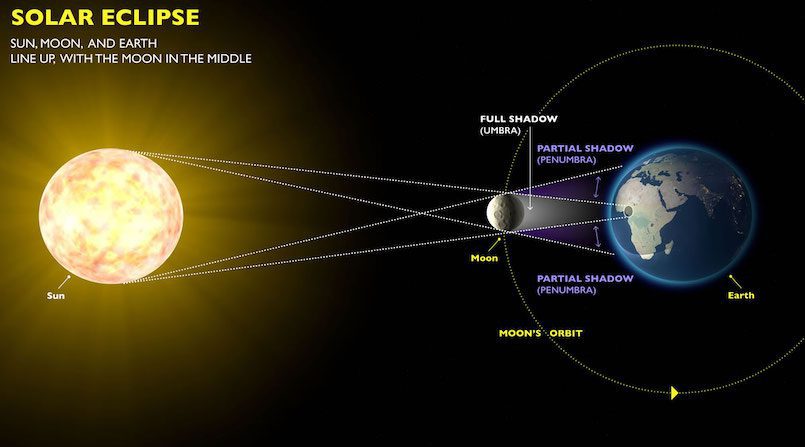
This remarkable and memorable event can be easily captured on any camera, and the experience will create memories for a lifetime. Families and groups can make the trip to Arkansas over the prior weekend and truly create a vacation of a lifetime. No special equipment is necessary; your pre-selected and secured spot, lawn chairs, a picnic and your cell phones are all that you will need.
Mark your calendars now and book your reservation for an experience like no other for April 8, 2024.
Visit both the “Solar Eclipse 2024 Arkansas” or “Arkansas Sky Observatories” (ASO) Facebook pages to keep up-to-date on planning for the eclipse; if your group or community is planning activities, let us know and your activities will be included in postings of upcoming plans for this remarkable, once-in-a-lifetime event.








